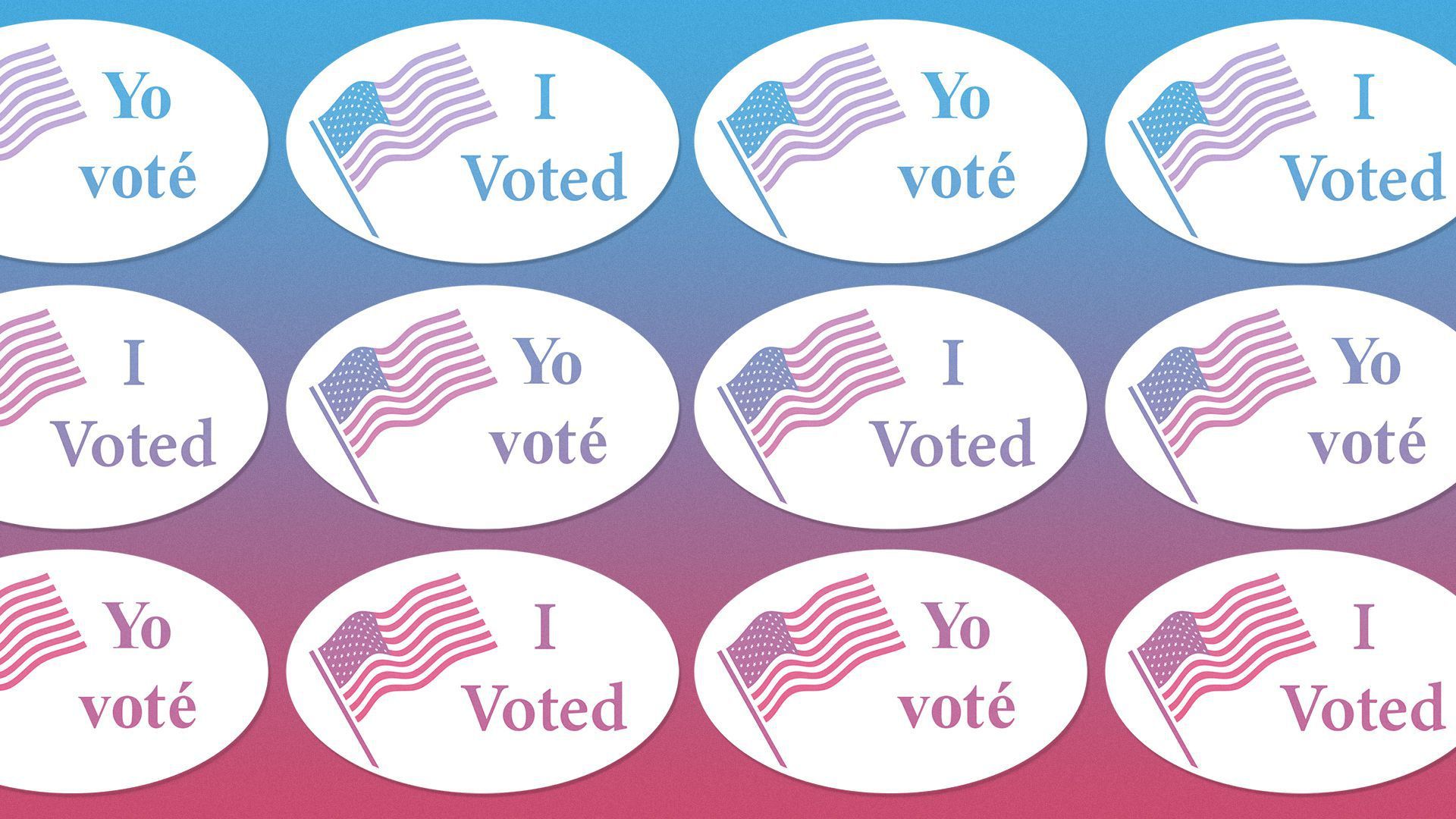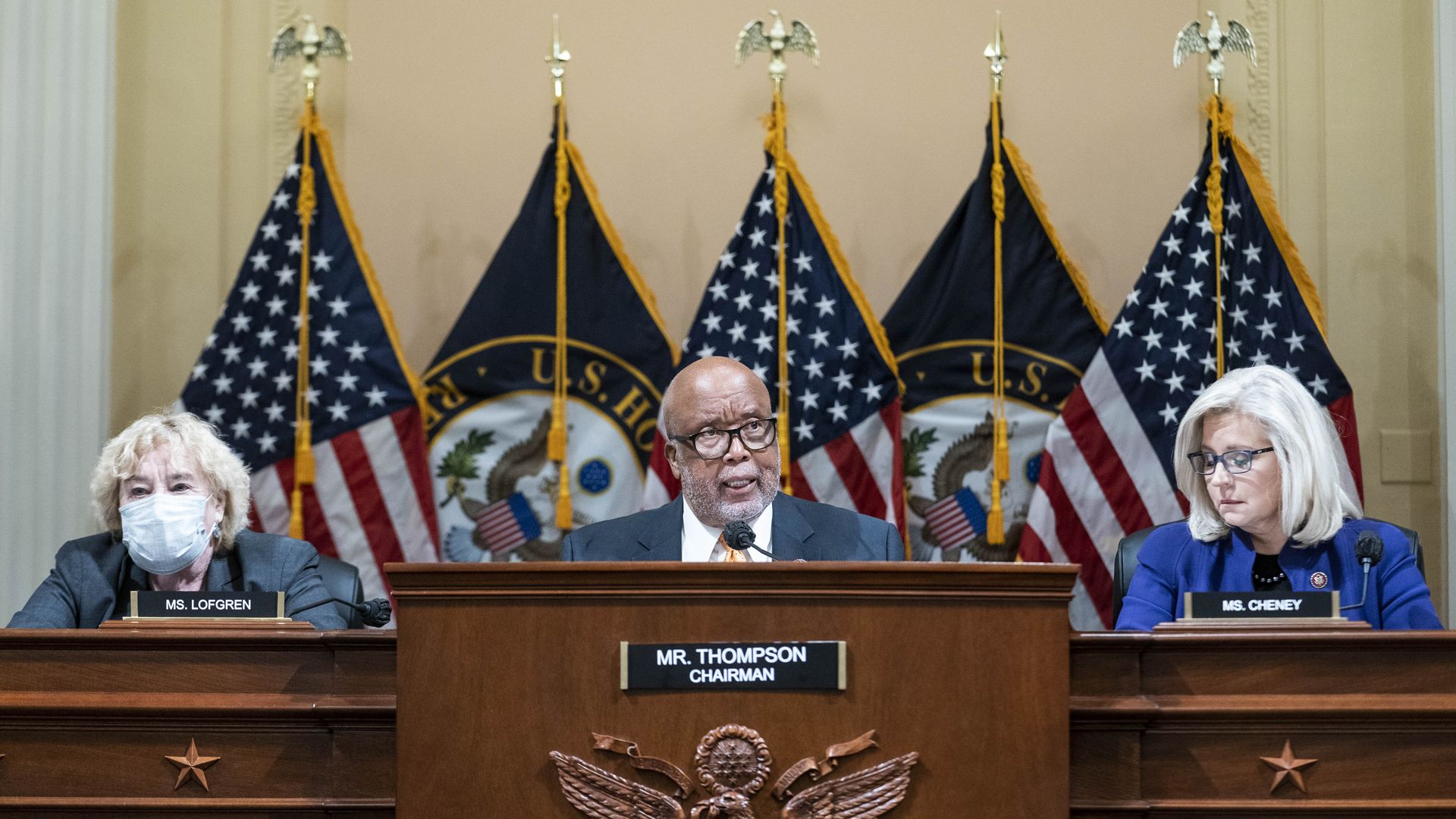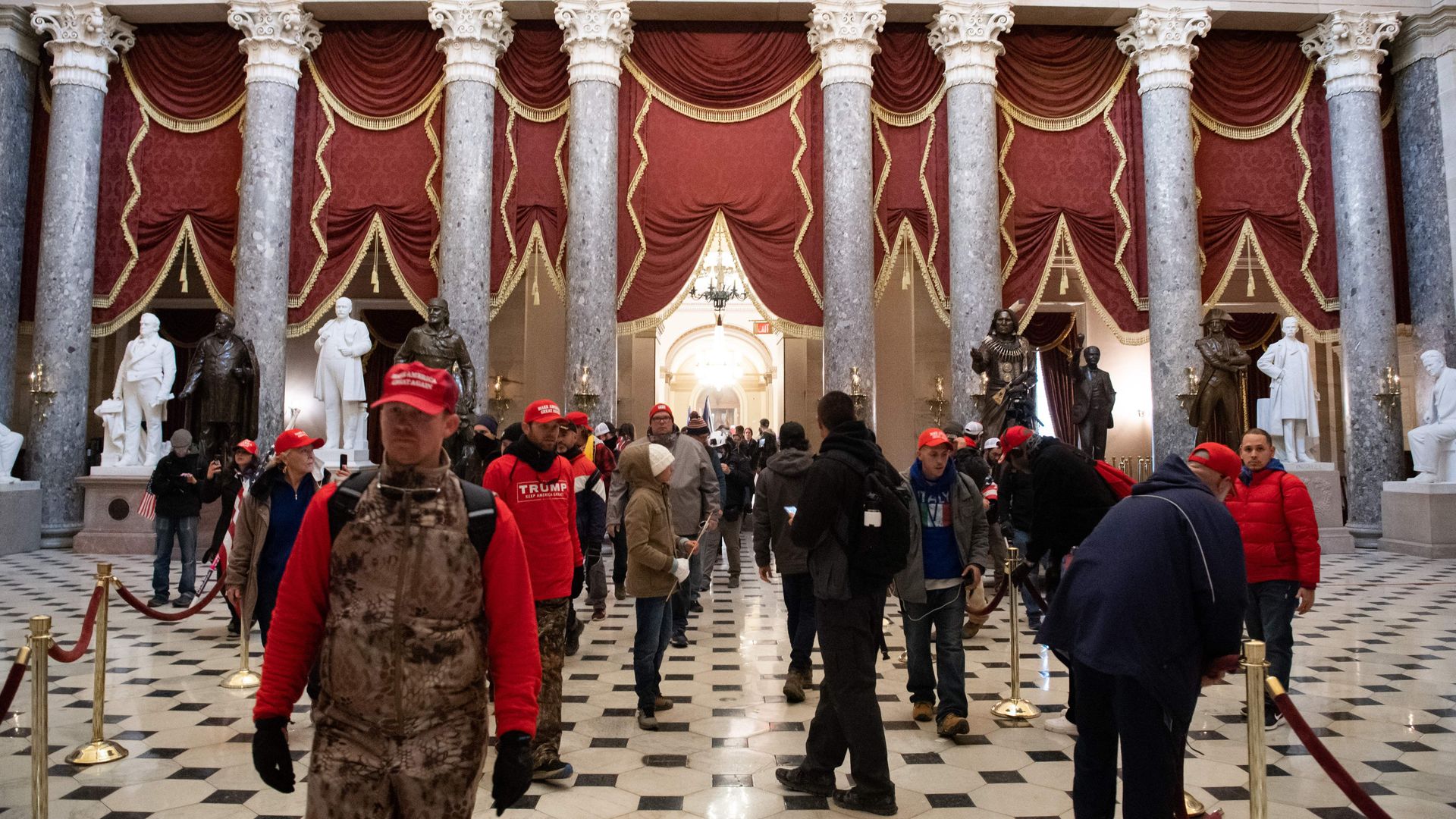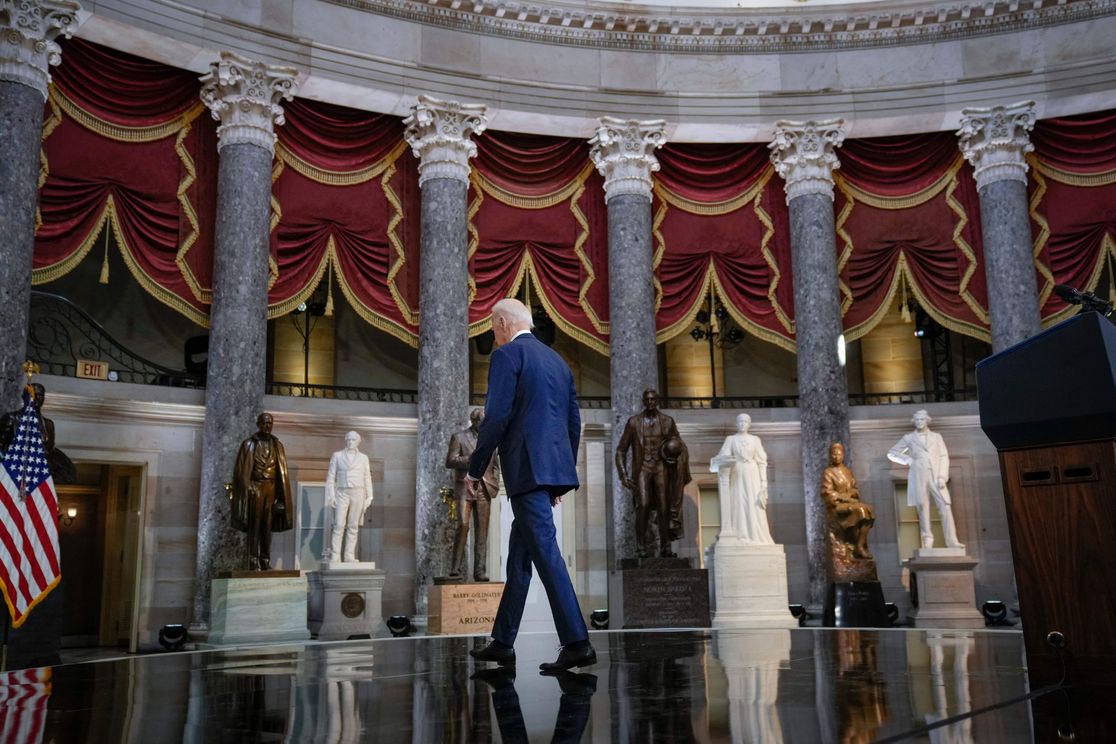| |
| |
| |
| |
| |
| Axios Sneak Peek |
| By the Axios Politics team ·Jan 06, 2022 |
| Welcome back to Sneak. A day of national trauma was remembered peacefully. Smart Brevity™ count: 1,042 words ... 4 minutes. Edited by Glen Johnson. |
| |
| |
| 1 big thing: Latinos, Asian Americans are new redistricting power |
 |
|
| Illustration: Shoshana Gordon/Axios |
| |
| Rising numbers of Latinos and Asian Americans in cities — as Black populations shift toward the suburbs — are forcing some states into redistricting decisions shaking up historically Black wards, writes Russell Contreras, co-author of the biweekly Axios Latino, as well as Axios' Stef Kight and Justin Kaufmann. Why it matters: News coverage around 2022 redistricting fights has focused on Republican efforts to maximize white and conservative voters' power. But many cities are grappling with an entirely different kind of redistricting drama — one that's mostly confined to heavily Democratic communities of color. Details: In Chicago, Latino and Black advocates have clashed over how the city's 50 districts should be redrawn. The city's Latino population jumped 5% during the past decade, while the number of Black residents fell 10 %. Keep reading. ✍️ Subscribe: You can get Axios Latino in your Inbox for free each Tuesday and Thursday by signing up through this link. |
    |
| |
| |
| 2. GOP grassroots turns on business |
 |
|
| Illustration: Annelise Capossela/Axios |
| |
| After Jan. 6, 2021, corporate PACs began cutting off Republican lawmakers who voted against certifying Joe Biden's presidential victory — but it doesn't appear to have done much to alter the lawmakers' behavior. The big picture: For all the attention on boardrooms and congressional offices, the GOP's drift away from corporate America over the past year is largely a grassroots phenomenon — driven less by executives or members of Congress than the people to whom both camps must answer, writes Axios' Lachlan Markay. What we're watching: Republican voters and grassroots donors are increasingly hostile to major segments of corporate America. - Large drug companies are in the crosshairs of conservative vaccine skeptics. Tech giants are labeled as "woke" or politically correct censors. Issues like trade and immigration pit conservatives against Washington's business lobby.
- Meanwhile, companies that cut off GOP election objectors — and, more broadly, have engaged on hot-button political and social issues — are responding largely to pressure from their own employees.
- While Jan. 6 was a watershed moment, some companies also had to navigate issues such as a new Georgia voting law that drew corporate boycott calls.
Be smart: Even if large companies and the members of Congress to whom they once donated wanted to reconcile, they're facing internal pressures from constituencies on opposite sides of a larger American cultural divide. Keep reading. |
    |
| |
| |
| 3. Election reform collision course |
 |
|
| Rep. Zoe Lofgren (left) sits with colleagues during a meeting of the Jan. 6 select committee. Photo: Sarah Silbiger/Bloomberg via Getty Images |
| |
| The Jan. 6 select committee and the U.S. Senate are on a potential collision course over reforms to the Electoral Count Act — a law from 1887 that President Trump tried to commandeer a year ago to return himself to office, Axios' Sophia Cai reports. Why it matters: A bipartisan group of senators is considering a variety of changes, yet the committee is weighing dozens of its own recommendations. A concern already echoed by several Democrats is that a quick fix to the act may undercut a more meaningful, long-term change. - "I think it may appear out of sync because on the eve of the Senate taking up voting rights legislation, some Republican opponents launched this discussion of Electoral Count Act reform," Stephen Spaulding, former counsel for Rep. Zoe Lofgren (D-Calif.), told Axios. "Reforming the Electoral Count Act is important, but wholly insufficient."
- Lofgren herself sits both on the Jan. 6 panel and chairs a separate House committee working on election reform.
- "If you look at the myriad of ways that elections can be subverted, the Electoral Count Act only touches a piece of that around congressional floor action," said Marc Elias, an election laws specialist who's been used by many members of the Democratic Party and party committees themselves.
- A committee spokesperson did not immediately respond to a request for comment from Axios.
The big picture: As Axios reported yesterday, the bipartisan group of senators is considering reform to the role of the vice president as outlined in the act as part of a broader push to strengthen election legislation. Keep reading. |
    |
| |
| |
| A message from Axios |
| Tech news worthy of your time |
| |
 |
| |
| Catch up on the top tech stories in just a few short minutes with Axios Login. Why it matters: Get the tech insights from Silicon Valley and DC that impact our lives Subscribe for free |
| |
| |
| 4. Kazakhstan uprising challenges Russia's Ukraine calculus |
 Map: Kavya Beheraj/Axios Russian paratroopers from a regional security alliance descended on Kazakhstan's largest city today to help quell the largest uprising in the history of the former Soviet republic — with potential strategic impact on Russia's plans in Ukraine, write Axios' Dave Lawler and Zachary Basu in tonight's edition of Axios World. Why it matters: Kazakhstan, a major oil and uranium producer that shares long borders with both Russia and China, had been remarkably stable for decades. The Central Asian power has fostered a friendly security and business relationship with the U.S., despite its authoritarian government. What's happening: Within just a few days, a small-scale protest over fuel prices in a remote region erupted into a nationwide uprising, with protesters storming government buildings and briefly seizing an international airport. - Violent clashes between security forces and armed protesters continued today, as an initial 2,500 soldiers from Armenia, Belarus, Kyrgyzstan, Russia and Tajikistan arrived in Kazakhstan for a "limited" operation to restore peace.
- Phone and internet blackouts have made it virtually impossible to track events nationally.
- According to the government, "dozens" of protesters have been killed and more than 2,000 arrested, while at least 18 security forces have been killed and 748 wounded.
The big picture: The historic unrest in Kazakhstan has thrown a wrench into Vladimir Putin's strategic focus for early 2022 — when Russia's military threats against Ukraine were expected to reach an inflection point. - High-level security talks between U.S. and Russian officials are set to begin Jan. 10 in Geneva, followed by a meeting of the NATO-Russia Council on Jan. 12 and the Organization for Security and Cooperation in Europe on Jan. 13.
Keep reading. ✍️ Subscribe: You can get Axios World in your Inbox for free each Monday and Thursday by signing up through this link. |
    |
| |
| |
| 5. Pics du jour |
 |
|
| Photo: Saul Loeb/AFP via Getty Images |
| |
| One year apart. Photo: Drew Angerer/Pool/AFP via Getty Images |
    |
| |
| |
| A message from Axios |
| Tech news worthy of your time |
| |
 |
| |
| Catch up on the top tech stories in just a few short minutes with Axios Login. Why it matters: Get the tech insights from Silicon Valley and DC that impact our lives Subscribe for free |
| |
| Editor's note: The first item in yesterday's newsletter about people on former Vice President Mike Pence's team cooperating with the Jan. 6 House panel has been corrected to reflect that Keith Kellogg was not in the Capitol the day of the insurrection, and updated to clarify Marc Short had received a subpoena. 🇺🇸 Thanks for reading on this important day. We'll be back Sunday evening. A reminder your family, friends and colleagues can subscribe to Sneak or any of Axios' other free local and national newsletters through this link. |
 | Bring the strength of Smart Brevity® to your team — more effective communications, powered by Axios HQ. | | |










No comments:
Post a Comment